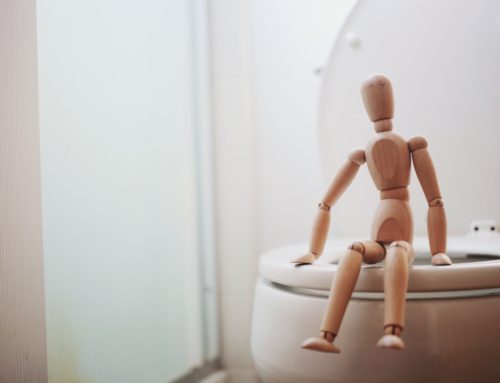By Dr. Angelina Riopel
We are what we eat, but we are also what we do not eliminate! Proper elimination of toxins and waste is as important as the food and nutrients that we take in. When we are constipated the toxins from the stool become reabsorbed and recycle through the body. Improper elimination of waste can lead to inflammation, chronic digestive concerns, allergies, skin rashes, eczema, fatigue as well as many other symptoms.
What is a Normal Bowel Movement?
Normal is a pretty loose term, but you should be having at least one bowel movement everyday and it should feel like you have completely evacuated your bowel. The stool should be formed, not hard or pellet-like, loose or watery. Blood and mucus is not normal.
Common Causes of Constipation:
Low dietary fiber
This is a common cause of constipation and thankfully can be easily remedied. The Standard American (and Canadian) Diet, also known as the SAD diet, is very low in dietary fiber. Low fiber intake can cause constipation because the stool is not bulky enough to stimulate peristalsis – which is how the bowel moves.
Dehydration
If there is not enough water in the bowel, the stool will be dry and pellet like. Dehydration and low fiber intake are a common combination that contributes to constipation. Dietary fiber and water work together to improve the bulkiness of the stool, improving peristalsis and the production of a healthy stool.
Electrolyte imbalance
This can also be a contributing factor to dehydration and constipation. This can be due to stress, excessive sweating and low electrolyte intake.
Food allergies & food intolerances
Both can contribute to constipation as they can cause inflammation within the digestive tract.
Unhealthy gut flora & microbiome
A healthy gut microbiome is essential to good digestion and healthy bowel movements. Many factors in our diet and lifestyle contribute to the disruption and imbalance of our gut microbiome. We are all trying to drink more water, but if you’re drinking tap water, it could be disrupting your microbiome! Tap water is a source of many toxins and chemicals like chlorine, heavy metals and pharmaceutical medications, including antibiotics that damage healthy gut flora. Other factors include a diet low in probiotics and fermented food, antibiotic use, pesticides from our food, stress and unfortunately the list goes on. Our modern day lifestyle is quite disruptive to our microbiome.
Stress
Stress affects bowel function, through what is known as the Gut-Brain Axis. The gut and brain communicate back and forth through the Vagus Nerve and regulate healthy digestive function. Stress can actually inhibit signals sent to the gut through the Vagus Nerve, which can cause constipation and other digestive issues.
Addressing the Root Causes of Constipation:
As you can see, many of the factors contributing to constipation are linked together. The following are steps that you can take to help improve your gut health and address constipation. Should constipation persist, you may consider having functional testing done through a Naturopathic Doctor to assess other factors that may be contributing to constipation, such as food sensitivities and your microbiome health.
Dietary Factors
- Increase dietary fiber in your diet. Fiber from fruits, vegetables, whole grains, beans and legumes, contain both soluble and insoluble fiber, which help to bulk the stool. Root vegetables like yams, sweet potatoes, carrots and beets contain prebiotics as well which help feed the good bacteria in your gut.
- Consume fermented foods, including sauerkraut, kimchi, kefir, miso, kombucha in order to provide your gut with healthy bacteria to nourish your Microbiome.
- Enjoy bone broth in order to reduce inflammation and heal the gut wall.
- Drink clean, filtered water to avoid toxins and antibiotics that damage the microbiome.
Hydration
Keep hydrated throughout the day with clean, filtered water and ensure you replenish lost electrolytes. Consume raw fruits and vegetables as they are high in minerals and electrolytes – think watery fruit & vegetables like apples, celery, cucumbers and coconut water! Caution with caffeinated beverages. Caffeine is a diuretic, which causes the body to lose water. For every caffeinated drink, you need two glasses of water just to replenish the water lost.
Stress Management
Identify and manage stress levels. Exercise, deep breathing, meditation and acupuncture can help your body manage its stress response.






